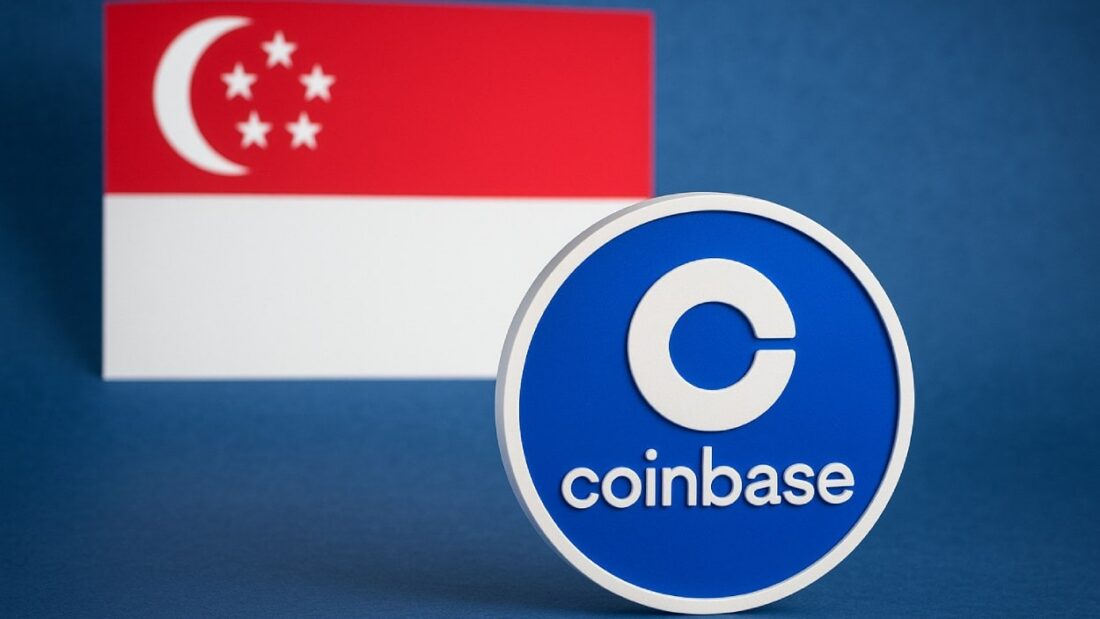Coinbase has launched its first international Coinbase Business platform in Singapore, bringing crypto-powered financial tools to local startups and SMEs in partnership with Standard Chartered.
Key Takeaways
- Coinbase Business launches in Singapore, its first market outside the US, targeting startups and SMEs.
- Standard Chartered partners with Coinbase, enabling real-time fiat transfers and seamless crypto transactions.
- The platform offers USDC payments, crypto payroll, trading, and global settlements through APIs and automation tools.
- Singapore is now Coinbase’s primary hub in Asia, emphasizing its strategic focus on the region.
What Happened?
Coinbase has officially launched its Coinbase Business platform in Singapore, marking the crypto exchange’s first expansion of the service outside the United States. Designed for startups and small to medium-sized businesses, the platform offers a suite of tools to streamline payments, trading, and treasury management using digital assets.
Coinbase Business has officially landed in Singapore! 🇸🇬
— Coinbase Singapore 🛡️ (@CoinbaseSG) November 12, 2025
We’re thrilled to launch the first international expansion of our all-in-one financial platform right here in Asia’s digital hub.
More details ↓ pic.twitter.com/reIvCMRmOM
Coinbase Targets Asia With a Crypto-Native Operating Account
Coinbase’s expansion into Singapore is more than a geographic move. It represents a push to deliver modern, programmable finance to one of the world’s most digitally forward markets. Through its partnership with Standard Chartered, Coinbase enables real-time Singapore dollar (SGD) deposits and withdrawals, providing seamless integration between fiat and crypto systems.
The new platform acts as a crypto-native operating account tailored to fast-moving businesses. It enables:
- Instant USDC payments for domestic and international vendors.
- Crypto payroll solutions for global employees.
- Shareable payment links for fast, low-cost customer transactions.
- Asset management with rewards on USDC balances.
- Accounting integrations with QuickBooks and Xero.
This all-in-one infrastructure eliminates traditional finance friction by offering instant settlement, minimal fees, and zero chargebacks, making it a compelling alternative for modern businesses in Singapore.
Strategic Commitment to the Region
Coinbase has been building its footprint in Singapore since 2023. After securing a payment license from Singapore’s Monetary Authority (MAS), the company began forming key partnerships, most notably with Standard Chartered. This local banking partnership plays a vital role in enabling the real-time fiat rails that power Coinbase Business.
Coinbase officials have referred to Singapore as a “go-deep market”, highlighting its importance as a financial hub and gateway to broader Asia. As other major exchanges like Binance and Bitget remain dominant in the region, Coinbase’s investment in Singapore shows its determination to gain ground and offer compliant, secure, and efficient crypto services.
Integration With MAS’s BLOOM Initiative
Coinbase’s efforts in Singapore also include its participation in MAS’s BLOOM initiative, which focuses on creating a next-generation digital asset settlement framework. Coinbase contributes specifically to the “Agentic Payments” stream, aligning with the government’s broader goals of a borderless, programmable financial ecosystem.
The company views the Coinbase Business launch not as a standalone move but as part of a series of deep commitments to help modernize financial infrastructure across Asia.
CoinLaw’s Takeaway
I think this is a smart, calculated move by Coinbase. In my experience covering the crypto space, expansion into a place like Singapore shows they’re not just chasing growth but building for long-term stability in a region that values regulation and innovation. It’s especially telling that they’re rolling out not just another exchange, but a full crypto operating system for businesses. That’s a sign of maturity and seriousness. If you’re a startup in Asia looking to scale globally, having programmable tools like USDC payments and crypto payroll might finally make digital assets feel usable and practical.


































































